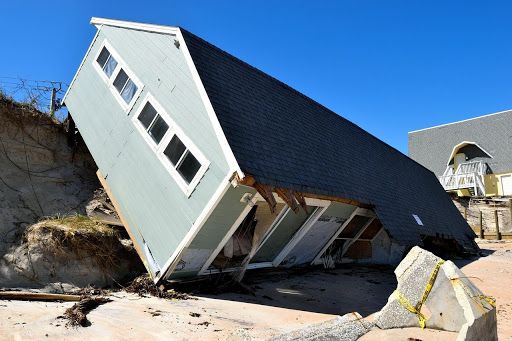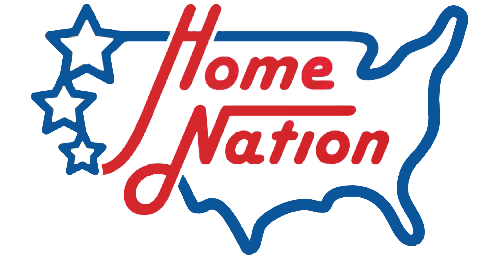
No matter what kind of homeowner you are, whether it’s a stick-built house or manufactured home, you deserve to be protected. Many people wonder if it’s worth insuring their mobile home and are unsure about the costs associated with doing so. Is it worth it? Yes -- and an effective mobile home insurance policy doesn’t have to break the bank.
Did you know that Home Nation has the best mobile homes and the best prices around? Check out our selection!
So, how do you know what kind of coverage you need, and what will it cost you? Let’s take a look.
What Is Mobile Home Insurance?
Insurance for your manufactured or mobile home gives you financial protection if it becomes damaged by accidents or certain disasters.
Mobile home insurance covers some of the similar perils that a regular homeowner’s insurance policy does -- but is explicitly designed to cover the differences between manufactured and site-built homes.
Related: Pros and Cons of Purchasing a Mobile Home
Do I Need Mobile Home Insurance?
Mobile homes are much lighter than a stick-built one, and they are also secured much differently. Because of these differences, sometimes the risks can be higher, making insurance even more crucial to have.
Mobile home insurance covers things like theft and vandalism, property damage, liability issues, and natural disasters like floods and earthquakes.
Most people are lucky enough never to have to experience these events, but without insurance, all it takes is one small incident to wreak havoc on your finances. Mobile home insurance can give you peace of mind to rest easy at night, knowing that you are protected.
Types of Coverage
Like any other homeowner, owners of manufactured homes often worry about their house getting damaged by events beyond their control, and mobile home insurance is here to help with that. While there are many types of coverage that insurance can provide, there are four essential features that make an excellent mobile home policy:
- Dwelling Coverage -- this protects and reimburses you for any damage caused to your mobile home by covered instances like wind or fire damage. Some policies will cover things not typically protected by renters or homeowners insurance, like flood damage. Dwelling coverage policies usually have a limit on the amount they will pay for damages
- Personal Property Coverage -- these policies will pay to replace your damaged personal belongings on the property. They are usually capped at a specific percentage of the limits provided by your dwelling coverage
- Liability Coverage -- this protects you from the costs associated with the legal liability you have of damaging someone else’s property or any injuries that someone sustains on yours
- Loss of Use Coverage -- another crucial part of a good policy, loss of use coverage pays you for the living expenses beyond your regular spending if something happens that makes it impossible for you to stay in your mobile home. This policy covers things like hotel rooms and gas reimbursement for the relocation.
There are plenty of additional options you can choose to add to your mobile home insurance policy, but these are the most critical ones to have. Some coverages to consider are:
- Additional structures
- Farm or ranch liability
- Replacement cost
- Water backup
- Identity theft

What Are the Costs of Mobile Home Insurance?
A mobile home insurance plan’s total cost can vary drastically depending on the type of coverage you want and the location, size, and value of your home. Depending on certain factors, you can expect to pay anywhere from $300 to $1,000 a year for a mobile home insurance policy.
Related: How Much Will a New Mobile Home Cost?
What Factors Into These Costs?
Many things factor into the cost of a mobile home insurance plan, but some of the biggest ones that affect your policy cost are:
- The value of your mobile home based on a recent evaluation and the purchase price
- The contents of your mobile home and their values -- think personal items and collection
- The address as stated on the mobile home’s title
- What materials your mobile home is made of
- How many square feet your house is
- The age of your manufactured home
- Your home’s renovation and repair history
- The previous insurance claims made on your home
- The location of your home, and if you own the land it occupies or not
- Safety devices, like smoke detectors and fire sprinklers or extinguishers
- Security features like sages, alarms, locks, dogs, and gates
Location
Your mobile home location has one of the biggest influences on the cost of your insurance policy. For example, Florida is notorious for having some of the highest mobile home insurance costs due to its crime rates and likeliness for severe storms. Some of the largest things that factor into the price of your policy based on location are:
- How frequent extreme weather and storms occur
- If you’re in a flood zone or not
- If you are at higher risk of wildfires or not
- The crime rates of the area
The city’s ability to tackle these hazards also plays a part in your insurance policy costs.
How Are the Costs Calculated?
When an insurance company begins to review your application for a mobile home policy, they check out all of the risk factors associated with the coverage you want. They then add up the costs that those risk factors bring and come up with a total amount for your policy.
The cost of your mobile home coverage will most likely change over time, depending on the current value of your home, and any insurance claims that you make on it.
Related: How Much Does it Cost To Move a Manufactured Home?
So, How Much Does Mobile Home Insurance Cost?

While the cost of mobile home insurance varies greatly depending on many factors, including the age and location of your home, along with what types of coverage you want, most homeowners are sure to find an affordable way to protect their assets.
There are some fantastic mobile home insurance agents out there that will help you find the best coverage for your specific needs. Insuring your manufactured home is one of the best ways to protect it and yourself from unforeseen hazards.
Are you ready to find your perfect mobile home?





